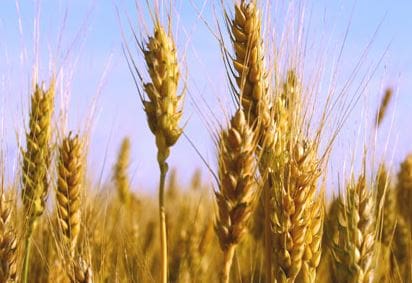DESPITE the COVID-19 virus effectively halting global travel and placing pressure on trade and transport links, Australian agriculture is well placed to support Australians through the COVID-19 crisis.
Released today, the NAB Rural Commodities Index surged 8.5 per cent to post its best month on record in February.
NAB Agribusiness economist, Phin Ziebell, said Australia’s position as a net exporter of food positioned the country well in terms of food security.
 “Australia produces roughly enough food for 60 to 75 million people, with much of this output currently exported,” Mr Ziebell said.
“Australia produces roughly enough food for 60 to 75 million people, with much of this output currently exported,” Mr Ziebell said.
“Despite a very challenging 2019 season, there is still grain in storage, the livestock sector continues to produce high quality meat, and fruit and vegetables are readily available.”
The report details how the virus will likely increase demand in domestic markets, while potentially limiting export demand and complicating global trade.
“There’s no doubt COVID-19 is wreaking havoc around the world, but at this point we haven’t seen any real disruptions to Australian food supply beyond panic-buying in supermarkets,” Mr Ziebell said.
“Domestically, panic-buying will bring forward demand for most agricultural products, with the exception of some speciality products destined for restaurants which will likely be in surplus.
“At the same time, the AUD has collapsed to sit between 57- 58 US cents, which is good news for exporters, but only to the extent that global trade flows can continue in the face of the virus threat.”
Threats to production
The report also outlines two key risks for the Australian food production.
Firstly, labour requirements for sectors like horticulture and livestock processing may become an issue.
Secondly, inputs like chemical and fertiliser are largely imported, and therefore susceptible to any break down in trade flows.
“Fruit and vegetable prices were 12.4 and 5.4 per cent higher respectively in February, but travel restrictions could see labour availability become an issue for horticulture this year, along with the potential for production disruptions if COVID-19 spreads among workers,” Mr Ziebell said.

Phin Ziebell
“Fertiliser prices fell substantially in 2019, but 2020 could be a rollercoaster. Lower oil prices point to a downside, but possible supply issues combined with a lower AUD need to be watched closely.”
Rain in New South Wales and Queensland saw feed prices trend lower this year with NAB predicting this to continue, notwithstanding the price impacts of a lower AUD and any increased demand for human consumption as a result of COVID-19.
In terms of livestock prices, the Eastern Young Cattle Indicator (EYCI) fell back slightly from its recent 767c/kg record to sit at 742c/kg.
“COVID-19 concerns for export markets and a lack of rain over the past fortnight suggests a downside risk for the EYCI,” Mr Ziebell said.
“Likewise, lamb prices look to have peaked for now, with the National Trade Lamb Indicator sitting at 923c/kg. Wool prices have held up, but demand is very uncertain in the current environment.”
The past four Global Dairy Trade auction results have been lower, but this is likely to be offset by the vastly lower AUD.
“It’s difficult to predict where the dairy market will go from here. China is a major buyer, however the rapidly worsening situation in Europe could impact supply there,” Mr Ziebell said.
Cotton prices have remained resilient, but demand is uncertain if the COVID-19 crisis continues to impact the global economy.
Source: NAB
Further information:
The NAB Rural Commodities Report (PDF)
Listen to NAB Agribusiness Economist Phin Ziebell discuss the latest developments in agricultural commodities
Listen to NAB Group Chief Economist Alan Oster discuss the latest developments in Australian agriculture and the wider macro-economic environment

HAVE YOUR SAY